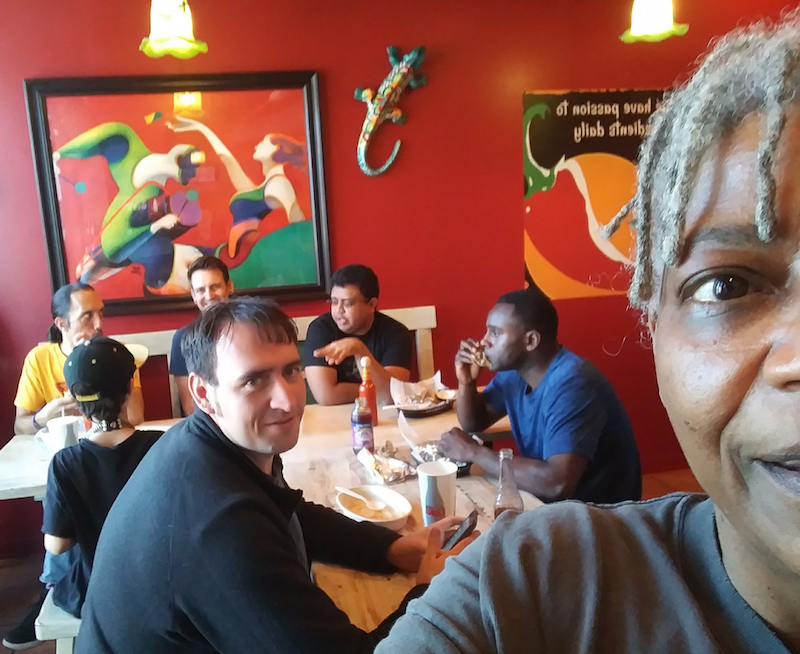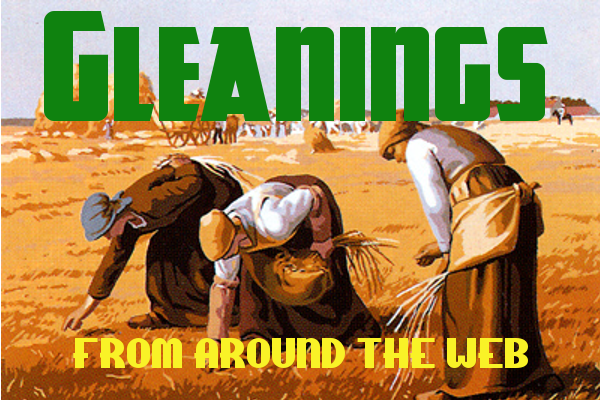
This week, worker-owners from Agaric consider the place of technology cooperatives in the larger worker cooperative movement, and examine how tech co-ops can leverage their unique position to catalyze collaborations across political and geographical boundaries.
Then Michael Johnson of the Ganas Intentional Community and the Growing Democracy Project writes about what he sees as the strengths and weaknesses of the current US worker co-op movement, and what he thinks is needed to strengthen and expand it moving forward.
Technology Cooperatives In The Movement - Where Are We Now?
by Micky Metts, Keegan Rankin, Benjamin Melançon
Originally Show and Tell was an internal technical discussion with short presentations from participants, and then it was opened to the public. Later it became a place where people discussed how to work more effectively together as a network of tech coops, and how to build pathways to help people get more involved in tech coops. Eventually, many of the wonderful people that we had many great conversations with over the years, including ourselves, would go on to participate in building the Patio community, a global federation of tech coops that work together on building software and community, and sharing work.
If this Is Us at 20, What Could We Be at 40?
by Michael Johnson
I have two suggestions for consciously growing the worker co-op movement, which naturally reach beyond to the whole cooperative economic movement. The first is to make full use of both Eleanor Ostrom's work and the wisdom emerging from the field of cultural evolution...My second suggestion might seem a far reach if not a deeply controversial idea: give a lot of attention and reflection to the so-called red regions of the US for expanding the worker co-operative movement.
Derided as 'hippies', the eco-villagers years ahead of their time
The Herald — It was 1982, the year Britain had, for the first time in its history, become an oil exporter, and the Findhorn group had announced they wanted to create a ‘Planetary Village’, a living example of how people could make sustainable use of the environment around them in an harmonious existence with nature and each other. They already stood out from the crowd: 20 years earlier, husband and wife Eileen and Peter Caddy and their friend, Dorothy Maclean, had arrived with their caravan on the windswept shores of Findhorn Bay on the Moray Firth...
Building the Revolutionary Housing Movement through Mutual Aid
People's Tribune — "Mutual aid, in a sense, is how you grow it—you gotta organize the brother that you’re giving that tent to, you gotta let them know what the fight is all about, what it takes to get that tent. You know, that tent didn’t come easy, it didn’t come from a well that don’t run dry. And so we need to let people know, “You need to become involved in the fight, basically. If we gotta come out here and give you a tent, under these conditions, you already know you need to get involved in the fight.”...
Providing care through the social and solidarity economy - Colombia
International Labour Organization — This assessment underscores the significant yet undervalued contribution of community care in Colombia, where unpaid domestic and care work, primarily undertaken by women, accounts for 21.7% of the GDP. The National Development Plan 2022-2026 has introduced the National Care System and the Ministry of Equality and Equity to address these issues. The study identifies key challenges, including gender disparities and decent work deficits, and highlights the potential of social and solidarity economy (SSE) entities to formalize care work, improve working conditions, and promote gender equality. The findings point to the need for systemic changes to enhance the recognition and support of community care providers...
The Co-operative Firm: Keywords
Academia.edu — This book represents an idea that has been put into practice and a gamble that has paid off. It is the result of an exchange of ideas that took place between Professor Monni and me when I was President of the Italian Co-operative Alliance and it uses the ‘traditional’ structure of a dictionary to present a series of ‘keywords’, with the aim of helping us to gain a greater understanding of co-operative enterprises. It has two aims: one is to present co-operation to a wide audience by clearly explaining its main characteristics and the other is to provide those who are already familiar with and interested in co-operation with new ways of interpreting and understanding a phenomenon that over a period of 170 years has spread to numerous different countries and fields...
New on our YouTube Channel
How Mirlo Works for Musicians
Like what you find on GEO?
Make a Donation Today!
Your tax-deductible contribution ensures that GEO can continue to provide independent grassroots content about the cooperative and solidarity economy movements.
Got something to say?
Let us know. Send your comments, suggestions, rants and article submissions to editors@geo.coop.
Follow us on Social Media
Mastodon: social.coop/@GEO_Collective
FB: facebook.com/GrassrootsEconomicOrganizing/
Twitter: twitter.com/@GEO_Collective
Our mailing address is:
Grassroots Economic Organizing
P.O. Box 115
Riverdale MD 20738-0115



